I received a question from a reader struggling with itchy, flaky skin on her horse. The vet has been out and prescribed shampoos and other medicines which haven’t worked. So she was wondering if treating with herbs like calendula, nettle, dandelion, red clover could help him? And if so, how much should she give? And did I have any other ideas?
Well without being able to see the horse or ask qualifying questions, here’s what I would do. Any one of these remedies might be the winning ticket, or, it could the combination of remedies that resolves the problem.
The first important distinction is whether your horse has itchy, flaky skin all over their body? Or only in certain areas?
Is the itchy, flaky skin more of a dandruff-type issue, or has the skin/tissue actually changed texture or appearance?
If your horse has itchy, flaky skin over much of their body and it’s more like dandruff, then remedies 1, 2, and 4 are a good idea and may be sufficient.
But if your horse has this issue only in certain places, or patches, and the skin has changed texture (thickened, scaly, bumpy, scabby etc) then head straight for #3 as there is likely an infectious agent (pathogen) involved. This remedy will kill the pathogen (bacteria, virus, fungus or parasite) while reducing inflammation and eliminating itchiness.
Holistic Remedies for Dry, Itchy, Flaky Skin
1. Sure, try those herbs. Herbs are always great for systemic support and long-term healing or resilience. If you fix the underlying issue that created the problem, the problem is unlikely to recur. You can buy great quality bulk dried herbs and here’s my list of herbs for horses, and which herb is good for what condition.
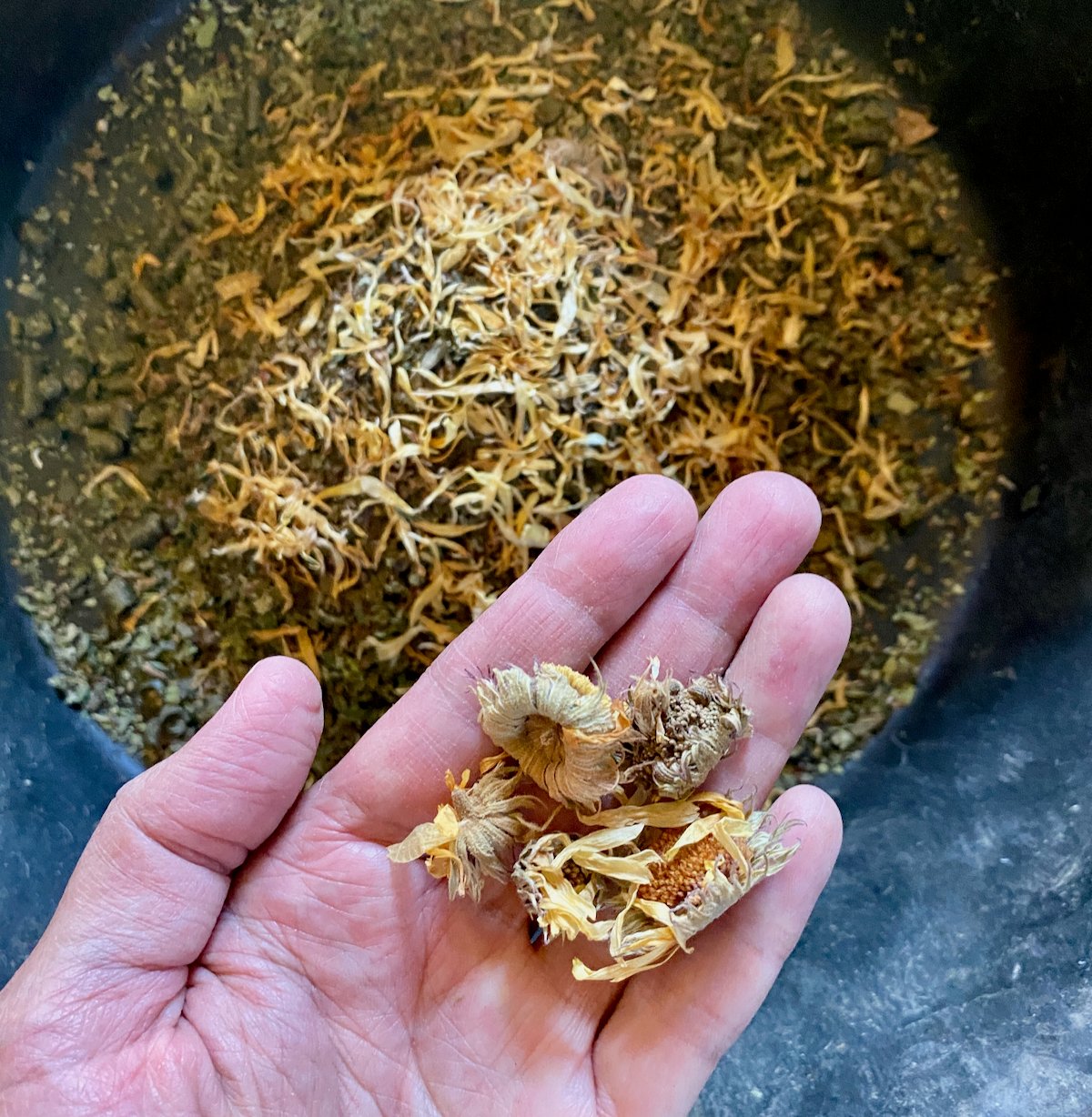
If you offer the herbs free choice and one at a time, then he can choose which herb he wants, and which amount he needs – here’s a video showing you how I offer herbs to my horses.
2. I would also give cold-pressed flax oil orally which is an awesome anti-inflammatory and very healing for the gut. Remember that, just like humans, issues with the gut are displayed on the skin. Again, pour it in his feed dish and let him drink/lick it straight so he can decide the amount his body needs.
One year, big mama Audelina drank (like it was water) an entire quart of organic flax oil. I offered them all free choice flax oil last week and she only drank about 1 cup. They know how much they need and when. Both the fillies drank a lot last week – which makes sense because Omega-3 is crucial for brain development.
I also use flax oil throughout the winter in their feed dishes, poured over their alfalfa pellets (no grains) and supplements.
3. If the itch/flakiness is only in certain areas, or has changed the texture of the skin, or your horse rubs until it’s raw, then I would apply diluted wild oregano oil topically, once per day, and stroke it gently into the skin. Or you can put it in a spray bottle and spray it on. Use a commercial wild oregano, NOT essential oil of oregano, and make a 6:1 dilution – 6 parts organic olive oil to 1 part wild oregano oil (Origanum vulgare).
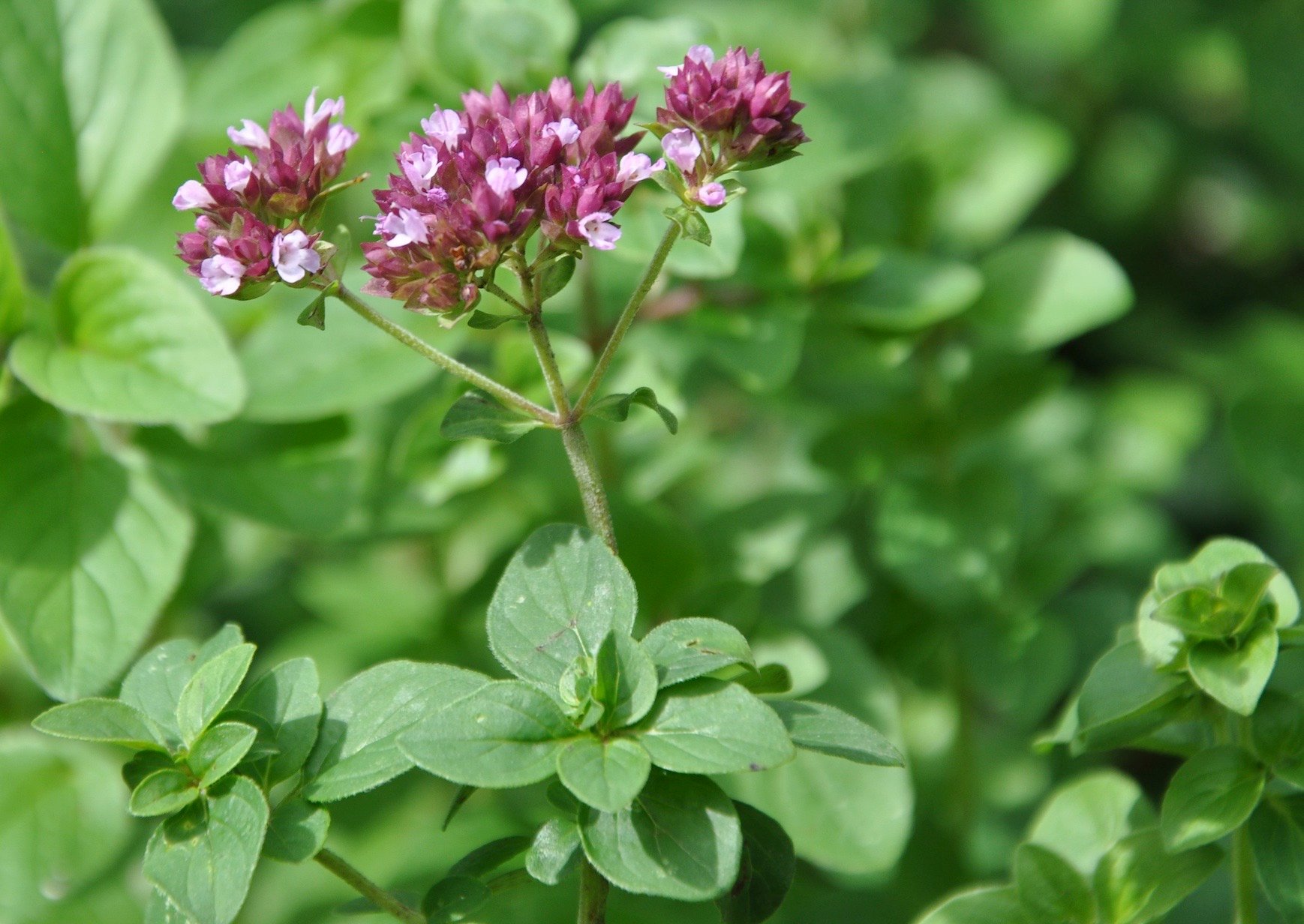
Wild oregano is anti-inflammatory and will also kill any microorganism (bacteria, fungus, virus) or parasite that could be causing the problem. But don’t use close to the eyes.
For something like rain rot, where you know the issue is likely fungal, then take your diluted wild oregano and mix it with just enough zinc oxide powder (available on Amazon) to form a paste. The zinc will dry out the wounded area, while also helping the wild oregano to kill the pathogen. See my video on ALL the ways I use wild oregano with my horses and dogs, and I will also show you the paste.
Again, you can let your horse smell the bottle and he will tell you if he wants/needs it or not. If you do this unhaltered, then he can walk away if he doesn’t want it.
4. The other thing that can work really well and is super cheap to try, is to massage cold-pressed coconut oil into his coat/skin every day or two. I usually combine this treatment with oral flax oil, but even just topical coconut oil can be enough to resolve dry, flaky, itchy skin.
5. Lastly, if none of that works, book a session with an animal communicator – because his body may be trying to deliver a message to you, and cannot release the symptom until the message is received!
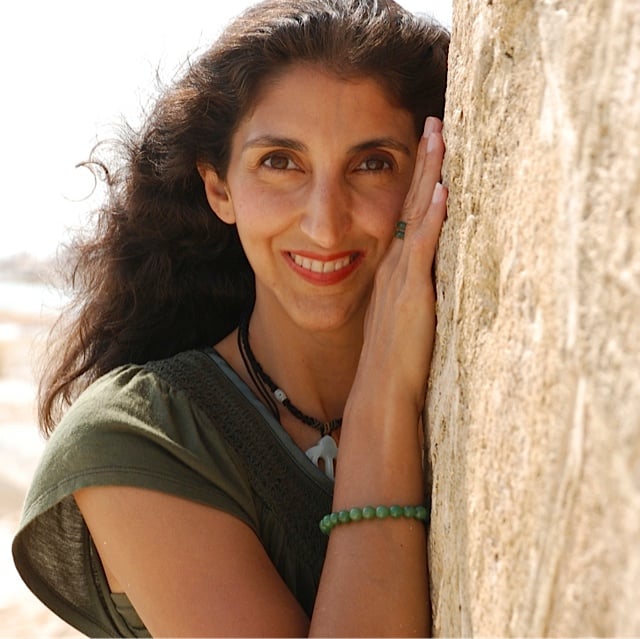
Jini Patel Thompson is a natural health writer and Lazer Tapping instructor. She began riding at age 2 in Kenya, and got her first horse at age 8 in Alberta, and so continues a life-long journey and love affair with these amazing creatures.

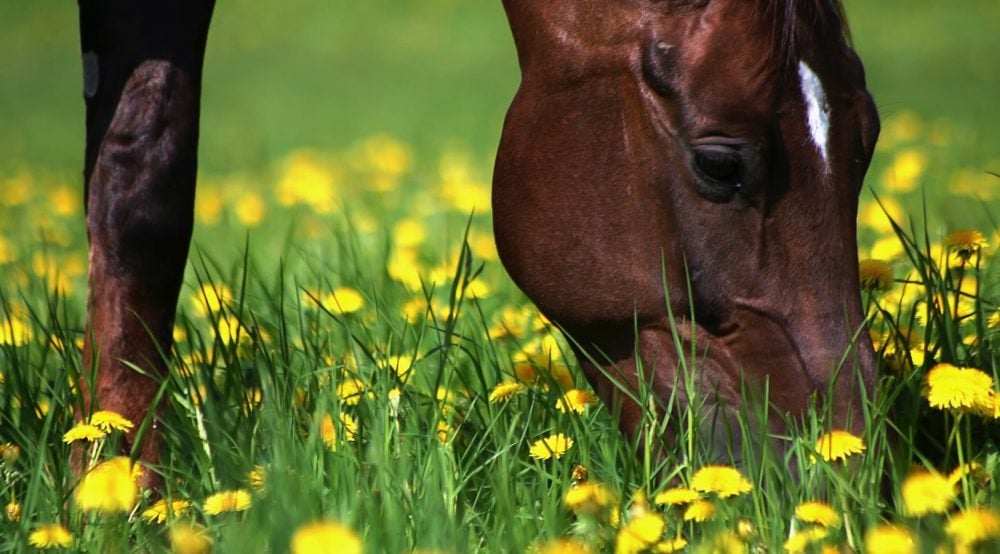
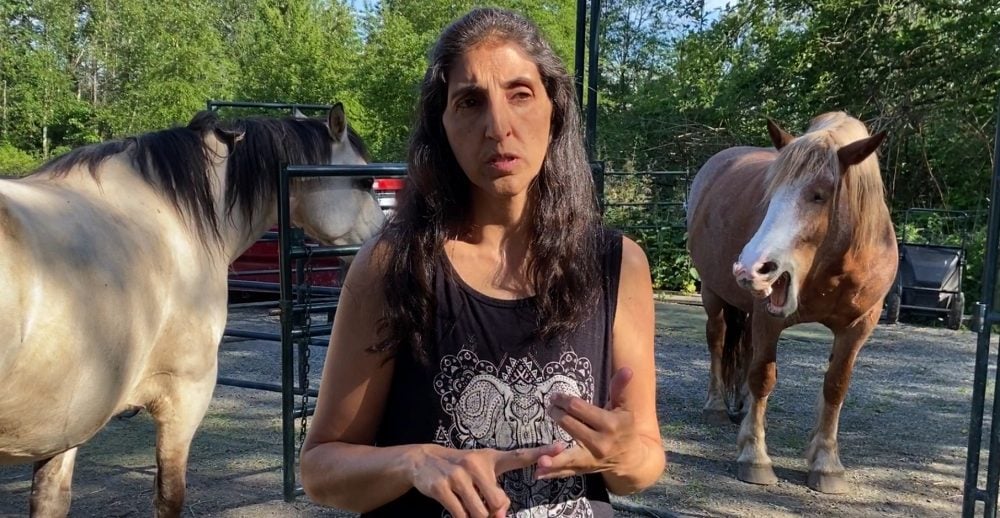
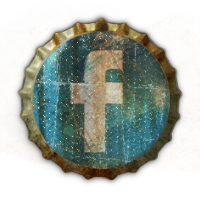
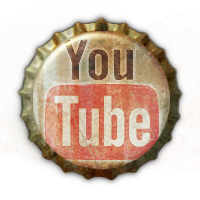


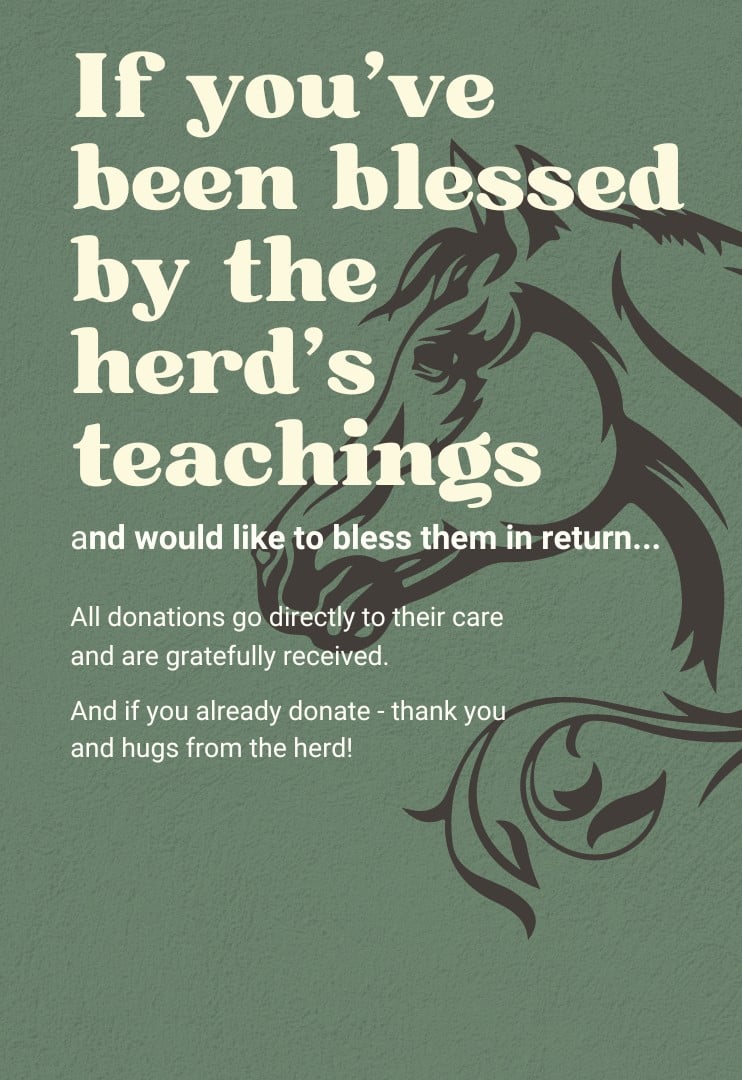
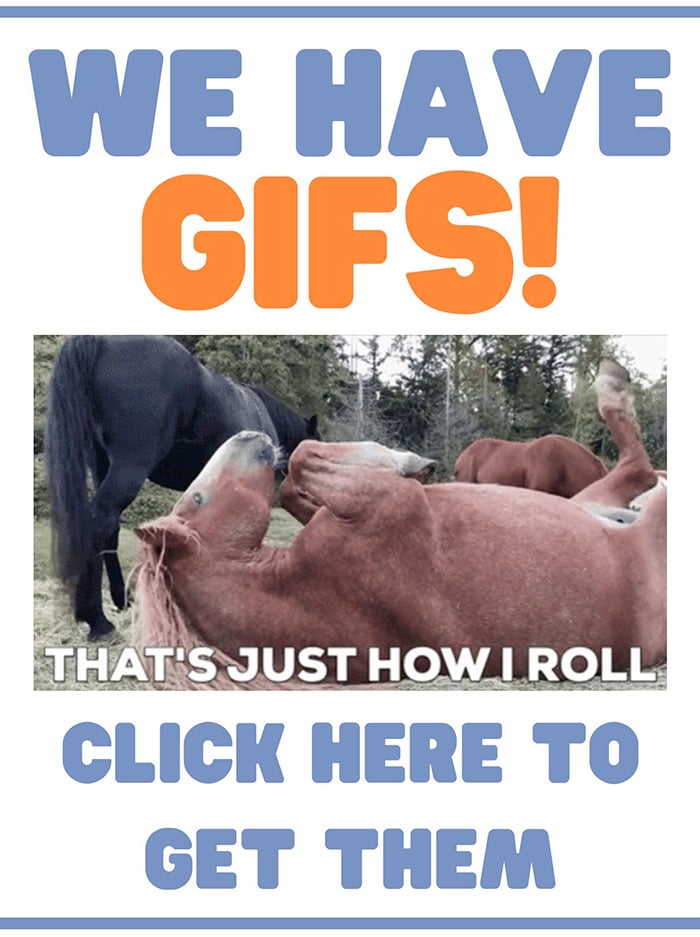
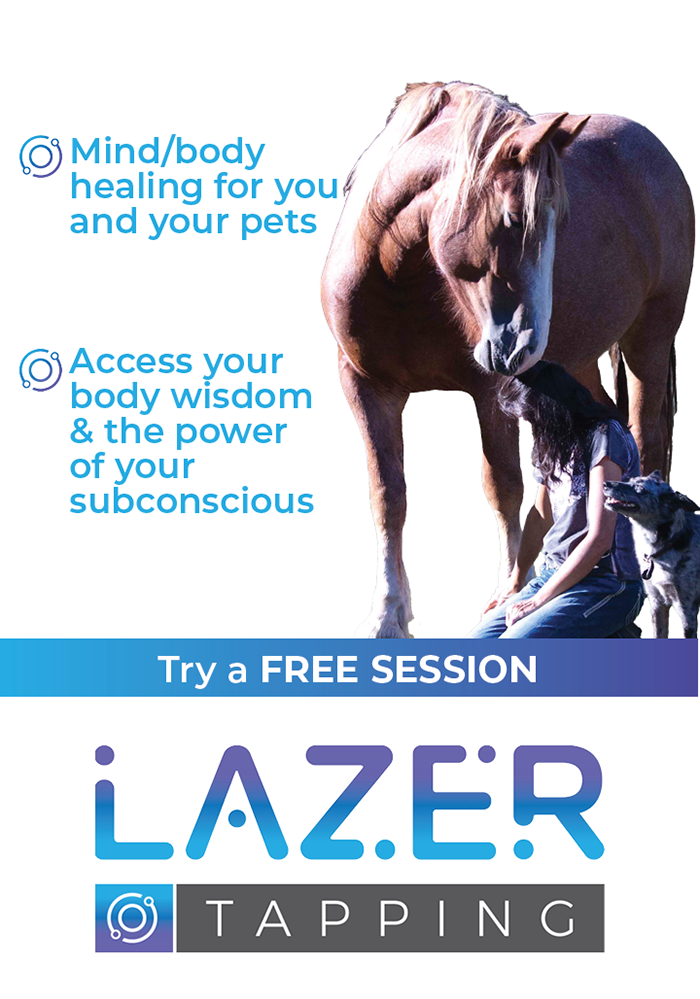
Dear Jini,
Thank you for these ideas; I will be using them all with my sweet Spitfire (a 20 year old Arab/Welsh cross) but I’m afraid all my efforts may elude progress, so I thought to ask you and your readers for your thoughts? Please excuse the length, but I wanted to err to the side of too much instead of too little 🙂 I’m a bit stuck with what to do!
Poor Spitfire is being tormented by flies and is beyond itchy – she’s scratching so hard her mane (whats left of it) is dyed black from the panel fencing, and her belly and top of the tail is a mess of sores. And yet she seems to be telling me she doesn’t want me to put stuff on it like baby diaper rash cream, or fly spray; she walks away when I offer it. She is lately fatter than ever, even though I reduced her hay. I know from reading your posts now that this was a bad idea but I did introduce some alfalfa into her diet in case she’s too low in protein, but she only got fatter – I only feed her a quarter flake.
I’m watching all this in some amazement as I’m preparing to bring her home to my small acreage and noticing how much is coming up in me: the resistance to it, the big questions arising about who horses are and what kind of relationship and expectations I want to have with Equus in general, starting with her.
I was introduced to horsemanship by the Parelli method – Spitfire was started within that framework – and yet no one can tell me why we dominate and command them, even in the most radical natural horsemanship circles like with the trainer Mark Rashid, or Buck Brannaman, Klaus Ferdinand Hempfling, or maybe even Amy Brimhall-McCord. I’m basically completely confused about how to understand horses and animals in relation to humans on a spiritual level.
Something else that may be connected is I’ve wanted to help Spitfire engage her belly and collect herself more, instead of hanging like a saggy line between her front legs and her back. But I don’t know how to accomplish this without making her run around on the end of a line and at liberty, which seems to go against the idea of a free being. Not only that, it’s particularly easy to make her do things, and hard to read what her opinion is about it, which is exacerbated by the impression that she’s not a particularly opinionated or dominating horse anyway but very willing and loves to be connected, offering it sweetly.
Maybe she is silently trying to get me to stretch and grow – not with behavior issues but with the subtle and slow degradation of her physical body.
Anyhow, what do you make of all this?
And how do I engage with a domestic horse and help her find her joy in flowing movement, and bring her back to health without dominating her or being too tentative?
Thank you so much for any guidance you might have 🙂
With much love and appreciation for the world you have opened for me.
Louisa
Hmmm… Louisa you’ve asked so many GREAT questions here and your scenario is so well-described… I think this is juicy enough for a blog post of it’s own. So I’m going to go ahead and do that. If there’s anything else you or Spitfire would like to add, please do so.
One question: Did you name her, or did she come with that name? Big hugs and looking forward to exploring this together! xox
Thank you so much! What a BIG welling of relief in my heart!
Her name came with her; she gets called Spitty most of the time. She got the name because when she was still ridden (and younger) she could turn on a dime, and was small and fast – like the spitfire airplane.
I guess the things I want to add is me trying to articulate what is at the heart of the matter. I don’t know if it comes across to you why this is important, but it’s been my confusion ever since we first were given Spitfire 8 years ago. Apologies again for the length!
I think my biggest question is around the spiritual nature of the relationship between horses and humans. There is a destiny and evolution I am struggling to understand, so I can know whether I’m supposed to be a dominant stallion (Klaus Ferdinand Hempfling’s work) or a lead mare (Mark Rashid, Amy Brimhall, Buck Brannaman’s work), or something else – a steward maybe, like our angels are for us? We were thrown out of the garden of Eden so we could progress on our path, but the horse was not – she still is one with the spirit.
And she suffers along with us not out of choice like us but because its her karma, determined long ago, like her very existence is dependent on us waking up and becoming wise; bound to us. I wonder what kind of relationship is needed and right? Are we meant to “help” or is it the other way around? Horses are not humans, so what are they in the evolution of consciousness?
All the horse people I have studied and watched, I never could quite get which neat little box into which they have put the horse-human relationship.
I’m just beginning to work at listening to Spitfire. I am a serious meditant (western esoteric path) of many years, but working on this listening level in the feeling realm is new to me – I completely suck at it. So I haven’t gotten very far, probably because I have overlays that need to be torn down so I can actually hear her, and I’m encountering a lot of sudden emotions coming up that I then have to process and release before I can get to any listening. Still working on that. So what her opinion is, or what she might add, I really don’t know!
I’m studying horse body language so I can see physically what she might be saying, like what you describe in your videos. Have you heard of Sharon Wilsie’s work in this regard?
Also, I’m inhaling all your videos and articles, plus Guliz’ as well, to try and learn into this new realm. Your work and approach with horses is the first time I’ve felt like someone has forged the way forward I need and want. I’m so happy and relieved to have found your work! It seems to me that all the inner work I have done and prioritized really does have a part to play in my future with horses and in helping my Spitfire. This is a big deal.
I’d better stop there. Thanks AGAIN for listening, and being willing to engage with me on these questions!
Awesome info – thanks! This really helps.
And yes, I have read Sharon Wilsie’s book – I tried some of her techniques with mine, but… they laughed at me. I think her language would work well for people who can’t “hear” horses. But if you can already communicate telepathically and/or energetically, then the horses are like, “WHAT are you doing??” They looked at me like I’d regressed to a toddler LOL. Although I did notice that some of her techniques I was already doing automatically – like slumping/rounding with the wildies to show them, “I’m no threat.” But if you think about it, if we are integrated (which many humans are not) then our body will automatically display our emotion or energy.
Anyway, thanks for elucidating this important topic and we will get back to you! xo
So interesting! Wow. I see what you (and your horses) mean about Sharon Wilsie’s work. You’ve really opened up a whole new world for me, I’m blown away. Also, the video you made with your husband about the hawk therapy is the clearest demonstration of the invisible fields of thoughts and feelings and how they impact animals that I’ve ever seen. It should be required watching for all those who believe their thoughts and feelings exist in a vacuum!
You’re gonna love the one I’m editing now… Ian takes those same principles he learned with the hawks and tries them out on some wild birds in Mexico! Coming soon… 🙂
Hey Louisa,
Welcome to ltyh community! It’s such a wonderful place of learning and support.
I was in a similar place about a year ago re listening to my horse.
And my how things have progressed over time by just simply scratching and grooming and me listening to where and how he likes it! I’m seeing how practising listening bit by bit is like a flower slowly unfurling! So exciting!
I am in awe how these beings help.
I have just been through detox from cigarettes and my dear horse helped me get through the worst part.
It was truly amazing how he did it.
Instead of the usual scratching sesh he nuzzled me a bit (which is unusual for him) and then parked his bum in front of me so i could brush his tail which is my fav thing. As I started the tears began to fall and I released alot of pent up stuff! It happened quite a few times throughout the detox stage.
Thanks to all the folk in this community, (horses included) I have been tremendously encouraged to walk along this path and I’m seeing the fruits and learning so much.
Lots o love to all
big hugs
Namaste
Erin 💚🐎🌳
Hey Erin! Thank you for your warm welcome, yes I’m so thrilled to have found all you folks doing this work! Thank you for sharing your wonderful story, it sounds like your horse loves you very much 🙂 Its amazing really, and your story is a pretty clear picture of helping each other heal and grow.
I’m really loving trying to open up and listen to my horse. My husband last night was surprised when I wailed “I can’t hear her!” right after I had told him about my interactions with her that day. He thought it sounded like I WAS hearing her, and that we had had a rich dialogue about opening gates, finding good grass and herbs, staying out of the hay barn when she was about to be fed and using that time to meander instead, and meandering around the ranch together. Maybe I was hearing her more than I had realized…
Thank you again, Erin!
Louisa